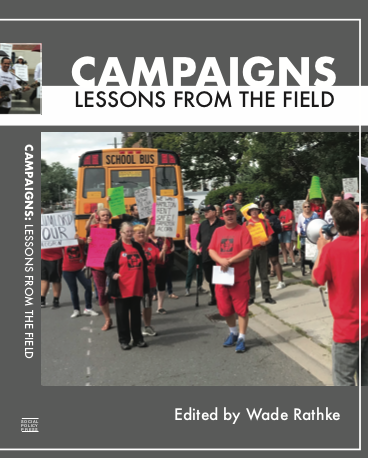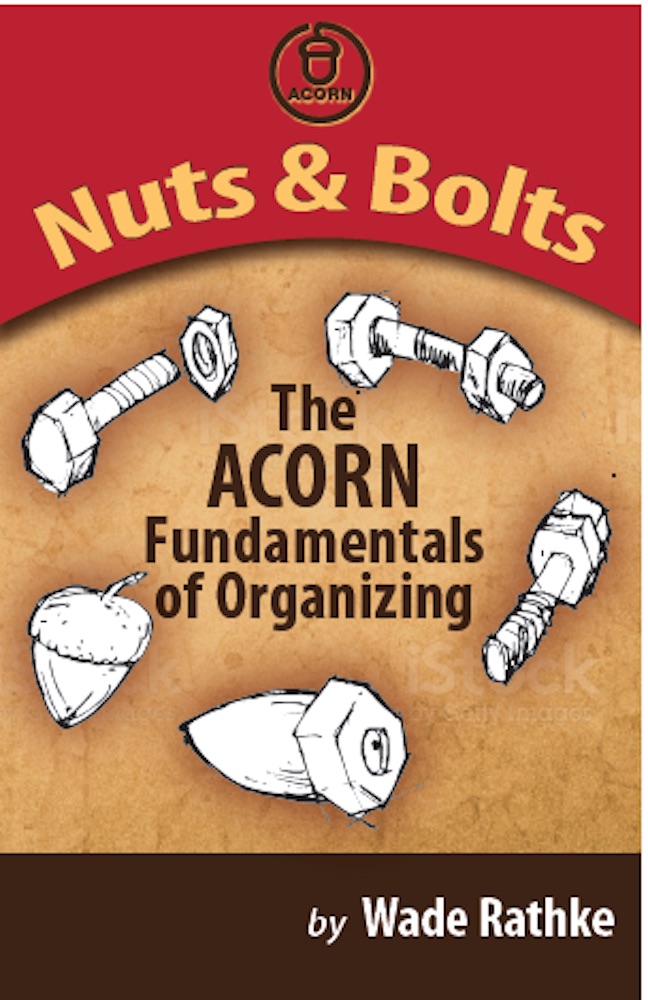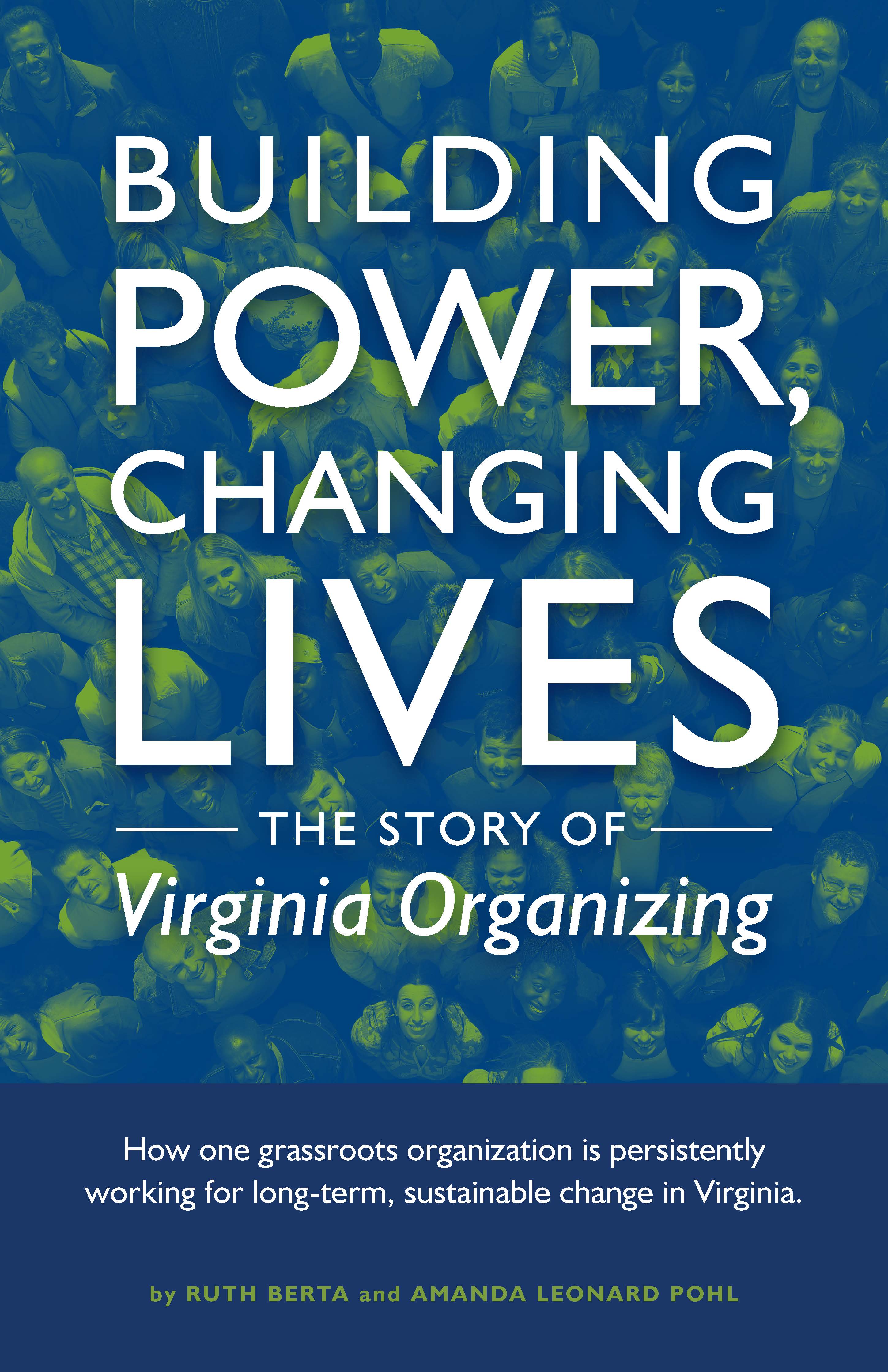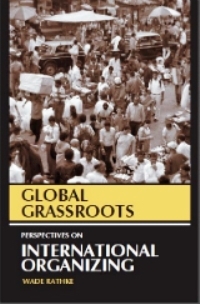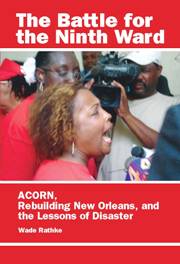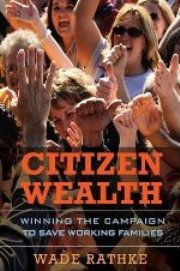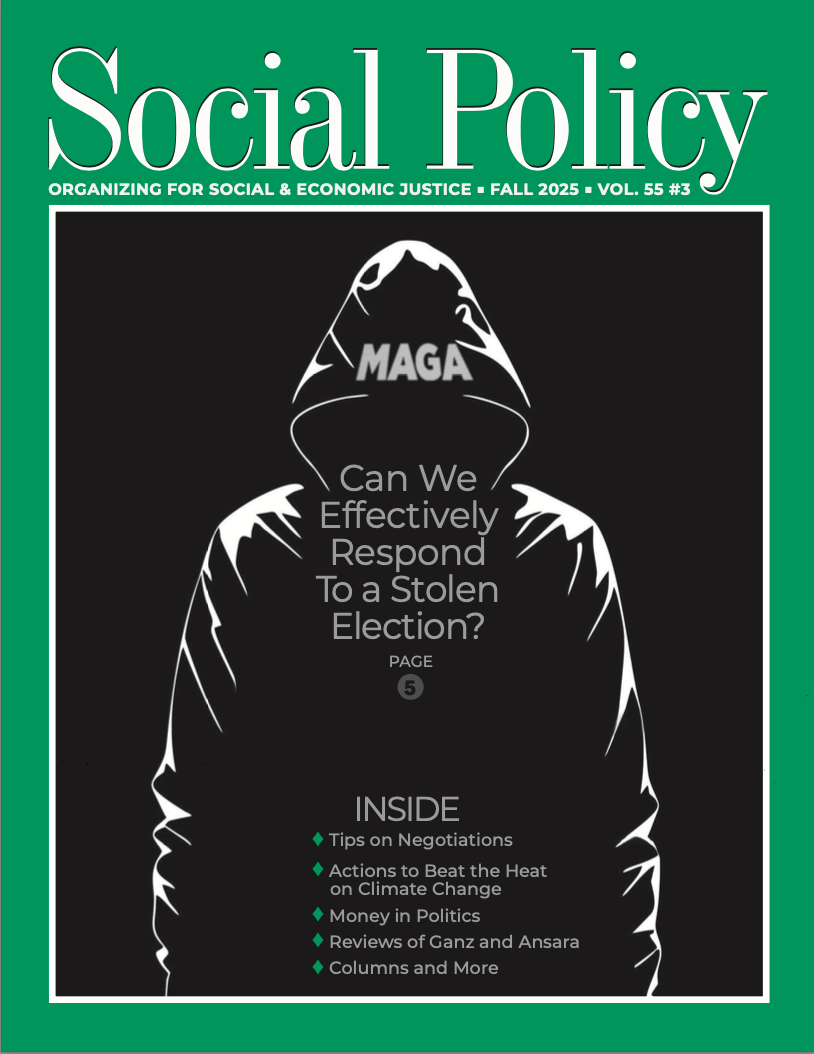BEAT THE HEAT: ORGANIZING FOR RELIEF AND CHANGE IN AN OVERHEATING PLANET
Written by Elliott Anderson
The ten hottest years in the history of the planet all occurred in the last ten years – with last year, 2024, reigning as the champion. While governments have the luxury of denying reality, poor and working class people do not. They bear the brunt of the new record-breaking heatwaves – and ACORN members have been organizing to fight for relief and change.
Of all types of weather, extreme heat is the most fatal. 489,000 people die each year due to extreme heat, and 18,970 deaths annually are attributed to workers exposed to dangerous temperatures.[1] Over the last year, 4 billion people — about 49% of the global population — experienced at least 30 additional days of extreme heat. Studies show that climate change has at least doubled the number of extreme heat days in 195 countries around the world [2] and climate scientists warn us to expect them to be more intense and more frequent in future.
Low- and moderate-income people are hit hardest by extreme heat days in their homes and on the job – reducing life expectancy, making people ill and exposing people to dangerous working conditions. Infants, pregnant mothers and the elderly are especially vulnerable[3] but anyone who is unable to escape the heat – whether it’s due to work or faulty housing is at risk. On July 23, 2025, ACORN affiliates around the planet held an inaugural “beat the heat” day of action to raise awareness, co-ordinate action, celebrate progress won by our members and to demand change.
Here's a quick overview of some of those global issues and activity:
India
Workers in Delhi, Agra, Patna, and Ghaziabad, took to the streets to demand basic protections on the job. The ACORN-affiliated Gig Worker Association is an all-India network of platform-based gig workers – mainly providing food delivery services in some of the world’s busiest and hottest cities. On extreme heat days in cities across India, members are expected to work in temperatures that are unsafe. Across India, delivery workers employed by online platforms work long hours without guaranteed rest zones, paid heat breaks, or basic heat safety protocols.[4] Heat-induced headaches, UTIs, stress, and fatigue are frequently reported.[5]
June 12, 2025 was a new extreme in Delhi. As the heat index climbed above 50°C, India’s meteorological department issued a series routine “red” warnings, urging citizens of Delhi to avoid the outdoors, especially at mid-day. However, Delhi-based delivery workers were told to report for delivery work from noon to 4pm. One[6] described the situation for many gig workers: “The company has made it mandatory to log-in for 3.5 hours between 12-4 PM during the hottest time of day to get incentives.” Ironically, the phones that workers use for their work routinely break down due to the extremely high temperatures.[7] As one worker stated: “The company doesn’t care whether we survive or not, they just want the deliveries done.”[8]
ACORN India and the Gig Workers Association took to the streets demanding action from India’s Ministry of Labor and app-based aggregators including Zomato, Swiggy, Blinkit, Zepto, Ola, Uber, Amazon. They called for recognition of extreme heat as an occupational hazard. Worker safety must be non-negotiable – and basic measures like rest stations, protective gear and hazard pay need to be put in place. The organizing is already paying off. In one recent victory, ACORN members and allies pressured India’s Meteorological Service to make heat warnings accessible to workers in the informal sector – through community platforms, posters and handwritten notices at labor chowks.[9]
Cameroon
Extreme heat is one of many on-the-job risks faced by sugarcane workers affiliated with ACORN Cameroon. Cameroon’s industrial agriculture sector alone accounts for 26.4% of work-related accidents. The ACORN-affiliated Syndicat des Travailleurs Saisonniers de la Filière Canne à Sucre de la Haute Sanaga estimates that the Cameroon Sugar Corporation (SOSUCAM), which holds a monopoly on sugar production in the country, is responsible for about a hundred work-related accidents per year on its plantations and in its factories - 90 percent of which were never compensated. Working in extreme heat has led to workers losing consciousness on the job.[10]
In January 2025, 4000 workers went on strike with a broad call for better pay and safer working conditions. After two weeks of peaceful protest, SOSUCAM called in 400 special forces officers with armored vehicles, resulting in the death of union member Gaston Djora and injuries to 11 others. SOSUCAM made modest concessions on wages after the strike but they have still refused to formally recognize the worker’s union. They continue to push for full collective bargaining and the right to organize without repression, and specifically for protection from workplace injury and compensation and support for people hurt on the job.
Canada
Canada is not normally seen as a global hot-spot but the climate crisis and poor housing design has left many tenants struggling with extreme heat. On average, Canada is warming at twice the global rate[11] and extreme heat events are becoming common. ACORN Canada’s 2025 report “Crumbling apartments in a warming world” details the troubling ways this impacts low and moderate tenants in multiple Canadian urban centers: Greater Vancouver, Greater Toronto-Hamilton, Ottawa, London, Greater Halifax, Calgary, Winnipeg, Moncton and Fredericton. Only 9% of surveyed tenants stated that they are not impacted by extreme heat and most reported poor sleep (74%), fatigue (66%) and headache (48%).[12] As ACORN Toronto Member Millicent Parke explained to a local news outlet, life in her apartment is unbearable in the heat: “I feel that it has become suffocating. I have to go outside for some fresh air. You can’t stand here. It’s like the rooms are on fire.” [13]
In municipalities across Canada, ACORN is running “Beat the Heat” campaigns calling for bylaws requiring landlords to keep units below 26°C/78°F. Other Canadian sections are focused on demands for cooling subsidies, energy rebates and changes to property codes that will allow members to heat-proof their homes.[14] In Hamilton and Toronto, member activism has already led to new programs for low income and vulnerable residents. A subsidy of up to $350 (CDN) towards the purchase of an energy efficient air conditioner is now available in these Cities for low-income seniors in need.[15]
Canadian ACORN members are also advocating for a nationwide retrofit strategy that does not leave tenants footing the bill for building improvements. Their efforts are already showing results. A $130 million (CDN) financing agreement between the government-sponsored Canadian Infrastructure Bank (CIB) and corporate landlord Avenue Living was a clear example of a retrofit program designed without tenants in mind. Under the agreement Avenue Living conducted essential energy retrofits and upgrades to housing for tenants, while the federal government backed the initiative with substantial funds as part of an overall push to curb GHG emissions. However, tenants were dismayed to learn that they would be hit with large rent increases. 16% of tenants were forced to move and further 55% said they could barely afford to pay.[16] ACORN tenant organizing forced the Canada Infrastructure Bank (CIB) to include affordability covenants in all retrofit financing deals. This means landlords must ensure housing remains affordable as they receive millions of dollars in federal funding for energy-efficient upgrades.[17] ACORN Canada members are now pushing for all green infrastructure retrofit partnerships and agreements from the Canada Infrastructure Bank, Ministry of Housing, Infrastructure and Communities, or CMHC must include must include affordability and anti-eviction covenants, energy efficiency and mechanical cooling measures.
France
France has repeatedly broken extreme heat records over the last five years and the French Government predicts that this will only become more common. The frequency of heat waves is expected to double between now and 2050.[18]
In French cities like Lyon, Marseille, and Grenoble extreme heat is an extreme risk for tenants. Of the 325,000 homes in Lyon, 10% can be classified as “passoires thermiques”, according to the municipal government[19]. In other words, ovens. The problem is especially acute in neighborhoods classified as “sites patrimoniaux remarquables” (significant historical sites), a planning designation which landlords use as an excuse to dismiss tenant concerns, falsely claiming that even modest building improvements are forbidden by law. Instead, units are transformed into furnaces thanks to windows without shutters, poorly insulated walls, lack of ventilation and poorly renovated attic spaces. When temperatures exceed 35°C outside, our members face temperatures that reach over 40°C inside.
Tenant members of the ACORN-affiliated Locataires Ensemble report insomnia, discomfort, physical exhaustion and heat stress. In June, as temperatures in Lyon reached 40°C (104°F), residents taped bed sheets to their windows in a desperate attempt to mitigate the heat, and were told by their landlords that window shutters and fans would not be installed. Some tenants were forced to leave their homes as they remained dangerously hot into the evening. As ACORN-Locataires Ensemble member Salim Pousin puts it, “In summer, our homes — unsuited to climate change — become heat traps and are uninhabitable for nearly two months a year. If the landlord doesn’t install the equipment needed to make the home livable, then I don’t see why I should be paying rent for an unlivable place.[20]
The problems of heat are exacerbated in poorly designed and aging buildings where low and moderate-income tenants often live. Retrofitting has the potential to make housing more livable and significantly reduce the carbon emissions that fuel the climate crisis[21]. As noted, governments across Europe, the UK and Canada have acknowledged the need for retrofitting in light of the climate crisis. However, retrofit programs are often inadequate, underfunded or fail to include renters or consider their concerns.
In communities across France member of ACORN-Locataires Ensemble have led the push for accountable and ecologically responsible retro-fits. At the government level, members have pushed for comprehensive mapping of building energy efficiency to identify “leaky” inefficient buildings, support for tenants including subsidized energy audits and legal services and penalties for landlords who refuse to make needed upgrades[22] Tenant organizing is already showing results. 7 targeted landlords have initiated the process of carrying out needed retrofit work in their buildings.[23]
Members are also seeing success in campaigns targeting “passoires thermiques”. On ACORN International’s Day of Action in July, tenants mobilized actions in Aubervilliers, Lyon, and Beaumont-sur-Oise. This mobilization expanded an ongoing campaign calling on municipal leaders to issue municipal decrees to ensure the health of residents. The decree should require landlords to install equipment that will better regulate the heat. In Lyon, city officials have now committed to urgent action on extreme heat, including exploring a local municipal decree and backing national legislation. Lyon marks a key breakthrough in the fight for heat-resilient housing and a major win for ACORN-Locataires Ensemble members.
England and Wales
In England alone, 52% of homes— equivalent to 13.1 million properties— require energy efficiency upgrades to meet national standards.[24] In the report “Retrofit for the Future” ACORN the Union and campaign partners note the urgent need for government investment – but also emphasize that resident voices are too often ignored. They note that previous government programs often produced unintended problems for residents: heat pumps installed without increasing insulation led to higher energy bills, poorly installed insulation caused mold issues later on. The largest barrier for tenants, however, is fear – of rent increases or eviction. ACORN’s own research found that 11% of tenants were issued an eviction notice after raising a repair issue and 57% of respondents had a rent rise in the previous 12 months. For too many moderate-income tenants and homeowners, retrofits that would make their homes more livable inevitably lead to increased costs they can’t afford or permanent displacement through renoviction.
ACORN, along with their allies in the Retrofit For the Future Campaign, are calling on their Members of Parliament adopt a retrofit program that includes real effective rent control, an end to no-fault evictions and rent freezes during renovations and a minimum 2 years after. These are crucial pre-requisites to any program of retrofits – to ensure tenants are protected against eviction or unfair rent hikes. Over the last year, ACORN members have achieved major victories on tenant rights and ending no-fault-evictions – compelling the government to introduce a Renter’s Rights Bill. However, the push for effective tenant protection and retrofit program continues.
Scotland
In Edinburgh Scotland, ACORN-affiliate Living Rent organized residents in Lochend are dealing with this conundrum. Lochend-Restalrig is one of the most deprived areas of Edinburgh, with a high percentage of residents in fuel poverty, and homes in poor condition. The energy efficiency is generally poor and some of the oldest blocks are entirely uninsulated.[25] Residents were, at first, happy to learn that Edinburgh Council was planning energy retrofits despite a lack of consultation. However, that soon changed as it became clear that the retrofits would result in significant upheaval and costs (between £10k and £40k for each resident). Some Living Rent ACORN members lost their homes following renovictions. There were long unexplained delays and so little clarity that people felt (and feel) like their lives have been upended for months. The costs, expected to be borne by residents, were far more than many could afford.
Through organizing ACORN-Living Rent members in Lochend have won policy changes that give private tenants more security and a right to remain in their home when their landlord decides to sell back to the council – and continue to organize.[26]
United States of America
Some national governments are not only failing to meet the crisis, they are actively dismantling the structures and schemes that people rely on to survive extreme heat. In the United States, the LIHEAP (Low Income Home Energy Assistance Program) is in crisis. In Donald Trump’s first term as president, the Republican administration proposed steep cuts to LIHEAP, but in the face of bipartisan pushback, the White House ultimately backed off.[27] Now under Secretary Robert Kennedy, Jr. all of the staff administering the $4.1 billion Congressional allocation have been laid off, so there is no way for the remaining funds to be distributed this summer. Historically, over the last more than 40 years of the program’s existence 90% of the funds have been used to support heating assistance for families in the winter with the rest for summer cooling. With climate change, more is needed for summer crises, even while the Trump administration is playing political games with the program to deny people desperately needed funding.[28] The program is not an entitlement and the money runs out way before the end of each fiscal year.
In another action, by executive order Trump has jeopardized the Occupational Safety and Health Administration (OSHA) protections mandating additional breaks triggered by high temperatures for agricultural and other outdoor workers. [29] Meanwhile, under the leadership of billionaire Trump donor Elon Musk, the Department of Government Efficiency has fired staff researching the impacts of extreme heat at the National Institute for Occupational Safety and Health (NIOSH) the National Integrated Heat Health Information System (NIHHIS) and The Centers for Disease Control and Prevention (CDC). [30]
In the U.S., grassroots groups joined the global Beat the Heat campaign with 4 local actions by ACORN members. Allies joined in the action. In Portsmouth, Virginia, Cool Down P-Town mobilized residents to map heat, engage the community, and launch urban cooling efforts. Grassroots Alliance in Louisiana and Arkansas, along with ACORN A Community Voice in Louisiana, called for emergency plans, housing upgrades, and federal protections in Little Rock and New Orleans. New affiliate Progressive Maryland, joined the day of action with online advocacy highlighting extreme heat in public housing and the urgent need for cooling resources.
What next?
ACORN affiliates have demands that are as diverse and varied as the countries where they operate. However, it’s clear that across the planet that extreme heat is part of the new normal. Governments, employers and landlords must recognize that heat waves and record heat days will only get more common with each passing year.
More than ever, urgent action is needed to reduce carbon emissions and mitigate the climate crisis. However, low and moderate income-earners are already facing the worst impacts of an overheating world and therefore require the most support – not added costs or risks to their homes and livelihoods. Any programs to alleviate heat or mitigate the climate crisis will fail unless low- and moderate-income people are organized, involved and respected.
Around the planet, ACORN International members and allies plan to keep organizing for relief and change to beat the heat.
Elliott Anderson is the Research Director for ACORN International, based in Toronto. He can be reached at This email address is being protected from spambots. You need JavaScript enabled to view it.
[1] Extreme Heat Is the Deadliest Weather Disaster, Scientific American, July 26, 2024 https://www.scientificamerican.com/article/extreme-heat-kills-hundreds-of-thousands-worldwide-each-year/
[2] Climate Central, Red Cross Red Crescent Climate Centre, World Weather Attribution “Climate Change and the Escalation of Global Extreme Heat: Assessing and Addressing the Risks” May 30, 2025 https://assets.ctfassets.net/cxgxgstp8r5d/4xsn9TLNNtmuTOTzNr2Txl/43dfdaed84074d4e4f481eefff0fbbff/Report__Climate_Change_and_the_Escalation_of_Global_Extreme_Heat__Heat_Action_Day_2025_.pdf
[3] Gronlund, Carina J. “Racial and Socioeconomic Disparities in Heat-Related Health Effects and Their Mechanisms: a Review” Current Epidemiology Report, July 1, 2014
https://link.springer.com/article/10.1007/s40471-014-0014-4
[4] Gig Worker’s Association Press Release, June 25, 2025 ”#CoolDeliveries: Campaign launches to Amid 45C Heat Wave to Demand Safety and Protection for Platform Gig Workers from Heat Stress and Extreme Climate Event”
[5] Gig Worker’s Association and Amazon India Workers Union, June 2025 “Climate, Delivery Work and Accountability: A Consumer’s Guide” https://www.instagram.com/p/DKmYcdANkmI/?igsh=M2ptaWp6M2EyeXRm
[6] Name withheld to protect against employer reprisals
[7] Gig Worker Association Press Release, June 25, 2025 “DELHI’S HEATWAVE vs. SWIGGY’S 3.5-HOUR MINIMUM SHIFTS”
[8] Joint Press Release Gig Worker Association, Amazon India Workers Union, Youth For Climate India, June 11m 2025 “#CoolDeliveries: Campaign launches to Amid 45 C Heat Wave to Demand Safety and Protection for Platform Gig Workers from Heat Stress and Extreme Climate Events”
[9]Agarwal, Priyangi, June 22, 2025 “Heatwave alerts to reach the most exposed group”, Times of India https://timesofindia.indiatimes.com/city/delhi/heatwave-alerts-to-reach-the-most-exposed-group/articleshow/121809139.cms/a24gk
[10] Syndicat des Travailleurs Saisonniers de la Filière Canne à Sucre de la Haute Sanaga, November 2023, “Accidents Du Travail À Répétition Dans Les Plantations De Cannes À Sucre” https://uploads.strikinglycdn.com/files/3114b990-2cf2-4974-af1a-55c4b69ec15e/2023_11_rapport%20accidents%20travail%20sosu_compressed.pdf
[11] Standards Council of Canada webpage, June 2025, “Urban Heat” https://scc-ccn.ca/areas-work/climate-and-sustainability/urban-heat
[12] ACORN Canada, May 28, 2025, “Crumbling Apartments in a Warming World: Tenants in an Energy Cost Crisis” https://acorncanada.org/wp-content/uploads/2025/05/ACORN-Crumbling-Apartments-in-a-Warming-World-Report.pdf
[13] Marcelo, Breanna, June 26, 2024“‘The rooms are on fire,’ Toronto residents are calling on the city to implement a max temperature bylaw ahead of next heat wave” NOW Magazine https://nowtoronto.com/news/the-rooms-are-on-fire-toronto-residents-are-calling-on-the-city-to-implement-a-max-temperature-bylaw-ahead-of-next-heat-wave/
[14] New Brunswick ACORN press release, June 25, 2025 “AC FOR ALL CAMPAIGN LAUNCH! NB ACORN says the time for cooler homes is NOW!” https://acorncanada.org/news/ac-for-all-campaign-launch-nb-acorn-says-the-time-for-cooler-homes-is-now/
[15] ACORN Hamilton press release, June 4, 2024, “ACORN Hamilton and allies win expansion of subsidized AC support program for low-income tenants” https://acorncanada.org/news/acorn-hamilton-and-allies-win-expansion-of-subsidized-ac-support-program-for-low-income-tenants/
[16]ACORN Canada, April 2024, “Rent gouging and retrofits: Tenants’ perspective of the CIB financing deal with Avenue Living” https://acorncanada.org/wp-content/uploads/2024/04/Retrofits-Rent-Gouging-Report.pdf
[17]ACORN Canada Annual Report 2024, February, 2025 https://acorncanada.org/wp-content/uploads/2025/02/ACORN-Annual-Report-2024.pdf
[18]Garric, Audrey, June 8, 2023, “France adopts its first heat wave management plan” Le Monde https://www.lemonde.fr/en/environment/article/2023/06/08/france-adopts-its-first-heat-wave-management-plan_6030577_114.html
[19] Lefèvre, Florian, June 25, 2025 Canicule : le calvaire des locataires des Pentes de la Croix-Rousse” Rue89Lyon, https://www.rue89lyon.fr/2025/06/25/pentes-de-la-croix-rousse-le-calvaire-des-locataires-en-temps-de-canicule/
[20] Testimonial provided to ACORN Locataires Ensemble, June 2025
[21] The International Energy Agency estimates that retrofitting buildings with energy-efficient operations could reduce global carbon emissions by up to 6.1 gigatons by 2050.
[22] Territoire Zéro Logement Passoire, 2023, “Locataires precaires face aux propietaires rentiers do logements passoires” https://www.precarite-energie.org/wp-content/uploads/2023/11/tezelopa-rapport-denquete-tzlp-grenoble-2023.pdf
[23] Territoire Zéro Logement Passoire, 2023
[24] Retrofit for the Future website, June 2025 https://retrofitforthefuture.co.uk
[25] Living Rent, June 2025 “Lochend MTIS: A retrofit case study” https://assets.nationbuilder.com/livingrent/pages/5301/attachments/original/1747822910/Lochend_MTIS_A_Retrofits_Case_Study_Living_Rent.pdf?1747822910
[26]Living Rent, December 18, 2024, Press Release “ Insulate Lochend Fairly: Win for private tenants!” https://www.livingrent.org/insulate_lochend_fairly_win_for_private_tenants
[27] Benen, Steve, April 2, 2025 “Trump’s latest cuts put energy aid for low-income households in jeopardy” MSNBC online https://www.msnbc.com/rachel-maddow-show/maddowblog/trumps-latest-cuts-put-energy-aid-low-income-households-jeopardy-rcna199305
[28]Plumer, Brad, April 2, 2025, “Entire Staff Is Fired at LIHEAP”, The New York Times https://www.nytimes.com/2025/04/02/climate/trump-layoffs-energy-assistance-liheap.html
[29] Surma, John, February 4, 2025 “Trump's 2025 Regulatory Freeze Affects OSHA Standards”National Law Review https://natlawreview.com/article/trump-administrations-regulatory-freeze-pending-review-pauses-oshas-rulemaking-heat
[30]Shah, Simone, June 16 2025 ,“What’s At Stake This Summer As Trump Targets Heat Experts”, TIME Magazine https://time.com/7294598/whats-at-stake-this-summer-trump-cuts-heat-climate-experts/


